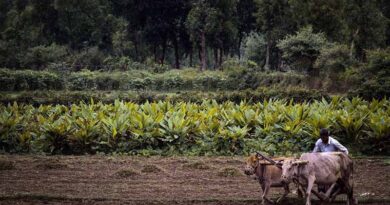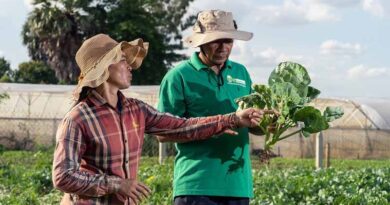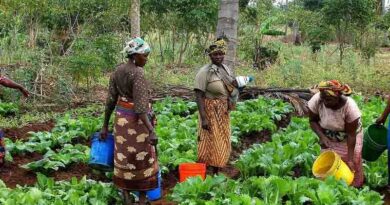Data sharing might not be easy, but it’s the right thing to do
03 May 2023, India: When COVID struck, the response amongst the scientific community was to share DNA sequencing and to rethink traditional ways of working to solve the urgent challenge of creating a vaccine, writes Chipo Msengezi, Project Manager, Digital Development, CABI.
This leads to some big questions about what else can be achieved through more concerted approaches to data sharing. What impact could this have on farming across the global south and the drive towards more sustainable food production for example?
Researchers in agri-food systems often go to great lengths to collect data. They also know, better than anyone, the value of accessing data from third parties, and yet very little of the data collected becomes accessible to others. How can that be?
Value of data sharing
There can be good reasons why organisations, or individuals, feel uncomfortable about sharing data. But the more these issues are confronted in stakeholder engagement processes, the more likely it is that workable solutions can be found, and appropriate safeguards can be put in place.
At CABI we are working with an increasing number of donors and partners on this issue. They see us as experts in the collection, storing and sharing of data. This is why in 2018 the Bill & Melinda Gates Foundation began working with CABI to investigate why data wasn’t always being used, even when everyone involved was committed to sharing data.
From a series of conversations with the foundation-funded soil projects in India and Ethiopia, some issues emerged that worked against data sharing. These were largely non- technical factors. The recurring challenges we found included a lack of resources, processes, and procedures, such as a mandate for data sharing.
Also, there were practical issues. Typically research platforms are tied to project funding and are not always available to use after the projects close. Too often data is lost, hard to find or in formats that are not easy to use, even when the intention was the opposite.
Challenges in the data space
In the wider data environment, these challenges have led to the development of a series of initiatives, such as the Open Data Movement. CABI has also done a lot of work on open data, and found this also creates challenges. For example, not all data that is collected can, or should, be shared. There are now global and national data protections to safeguard people’s personal information. This means most data needs some curation and redaction.
CABI’s work interested the foundation. The foundation saw it could support grantees to implement the data access policies that the organisation had recently adopted. CABI proposed using the FAIR data principles as a framework for improving access to data.
FAIR data is defined as data that is Findable, Accessible, Interoperable and Reusable. As a framework it’s gained wide acceptance, especially by the EU Horizon programme, and with other research funders.
With the foundation, we worked within funded projects to address the challenges the projects encountered. But, critically, CABI also started to work with foundation staff to better equip them to assess and support promising data projects to embed good practice from the outset. It was important to make the foundation aware of the potential pitfalls in a proposal as early as possible. But equally importantly the program officers and the grantees needed to be able to access help and support from experts able to deliver the FAIR data principles.
FAIR access
These FAIR data principles are a brilliant starting point. However, they were originally developed for an audience that is very comfortable with technical language, which can be stressful and off-putting for others who are also integral for designing strong projects.
CABI’s approach to data sharing is to work collaboratively with our partners to customise and define project-level FAIR principles. Our approach is to first understand the people in any data ecosystem, their relationships with each other, then the challenges, needs and opportunities.
At CABI we want those we work with to tell us what FAIR and data sharing usefully means to them. It is far more effective if the definition comes out of engagement with the community that supply and use the data.
CABI supports practical implementation of the FAIR approach, designing better processes and training teams. This starts by understanding the problem. Then we map the landscape to work out where we can make the most difference in support of better data sharing.
We are currently testing a process that aims to guide organisations towards developing their FAIR implementation strategies. Often this is in parallel to helping donors and governments design better data governance, strategy, and policy.
Building awareness
Getting to a position where an organisation has its data available to share is a long-term, resource-heavy, and time-consuming process. Furthermore, most of the benefits will accrue outside of the organisation. But the potential benefits flowing from these changes can be transformative. For example, data can help to support improved resilience amongst smallholder farmers, their communities and the natural environment. But for an organisation to be ready to share their data effectively takes leadership from the top of the organisation.
Also Read: Absolute launches its biological agri-input business Inera CropScience
(For Latest Agriculture News & Updates, follow Krishak Jagat on Google News)















